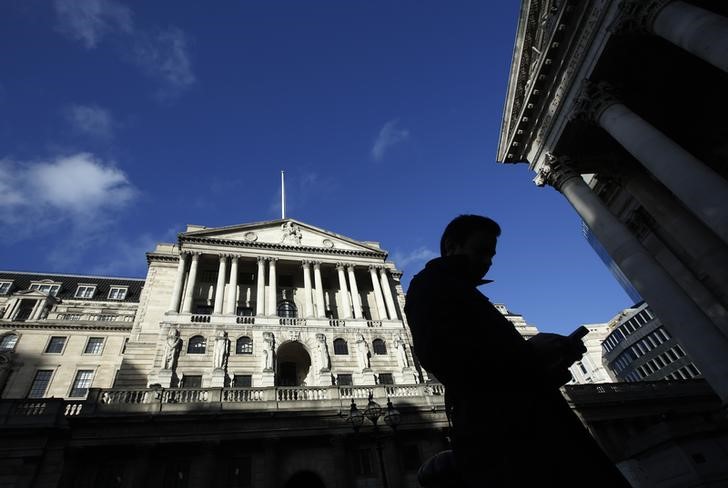United Homes Group stock plunges after Nikki Haley, directors resign
Investing.com -- Bank of America (NYSE:BAC) (BofA) analysts expects the Bank of England (BoE) to reduce its quantitative tightening (QT) efforts starting in October 2025, according to a note on Friday.
The analysts forecast a decrease in the pace of U.K. Gilt purchases to £60 billion from the current £100 billion. This move includes £49 billion of "passive" QT set for 2025/26 and anticipates £10.9 billion of "active" QT.
Concerns have been raised about the potential impact of QT on monetary conditions. BoE research suggests that QT might be tightening monetary conditions more than expected, which could counteract the BoE’s efforts to ease conditions through interest rate cuts.
The transition from Quantitative Easing (QE) to QT has highlighted significant adjustments in effective supply from the Debt Management Office and BoE.
BofA analysts believe that the shift to a demand-driven reserve provision framework is proceeding well, but they recommend a slowdown in reserve reduction as the end of abundant reserves approaches.
The fiscal implications of slowing the QT pace are considered negligible by BofA.
Analysts estimate that reducing the QT pace to £60 billion would lower fiscal headroom by only £0.3 billion, which they describe as a rounding error. They also note that stopping active QT entirely would reduce headroom by £0.6 billion.
Regarding the impact on the British pound (GBP), BofA analysts suggest that the effect of QT on the currency is complex.
Traditionally, higher U.K. yields have supported the GBP, but recent volatility in sterling has occurred alongside Gilt dislocations and yield spikes.
While BofA expects limited impact on the GBP, easing fiscal pressures through lower long-end yields could alleviate some market concerns.
